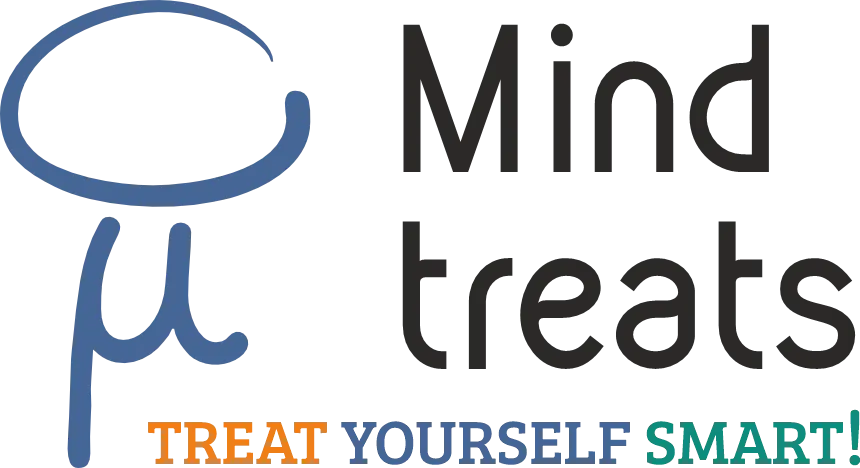Have you ever felt overwhelmed by your emotions or struggled to stay focused on your goals? If so, you may benefit from mastering the art of self-regulation. Self-regulation is the ability to manage your thoughts, emotions, and behaviors in a healthy and productive way.
By developing self-regulatory skills, you can enhance your productivity, improve decision-making, and achieve success in both your personal and professional life. In this article, we will explore the concept of self-regulation, its pillars, and strategies to improve your self-regulatory processes.
Key Takeaways:
- Self-regulation is essential for achieving success in various aspects of life, including work and personal growth.
- Through self-regulation, you can manage your thoughts, emotions, and behaviors effectively.
- Developing self-regulatory skills can help improve decision-making and enhance productivity.
- Self-regulation involves emotional regulation, impulse control, executive functioning, and behavior regulation.
- You can unlock your potential for success by applying self-regulation techniques in your daily life.
Understanding Self-Regulation: Definition and Importance
Self-regulation is the ability to manage your thoughts, feelings, and actions in a way that promotes personal growth and success. It’s an essential skill that allows you to stay focused on your goals, make sound decisions, and maintain healthy relationships.
Self-regulation involves many cognitive, emotional, and behavioral processes that work together to help you regulate your behavior effectively. It starts with self-awareness, which involves recognizing your thoughts, emotions, and behaviors. From there, you can use various self-regulatory strategies to manage your impulses, emotions, and behaviors.
Self-regulation is vital for personal growth and achieving success in all aspects of life. People who master this skill can boost their productivity, maintain healthy relationships, and cope with stress and challenges effectively.
The Pillars of Self-Regulation: Self-Control and Self-Discipline
To master self-regulation, you need to develop your self-control and self-discipline skills. Self-control means managing your thoughts, emotions, and behaviors to regulate your impulses, thoughts, and emotions. It enables you to stay focused on your goals and make better decisions.
Self-discipline, on the other hand, is the ability to stick to your goals even when faced with obstacles, distractions, or temptations. It requires commitment, resilience, and determination. By developing your self-discipline, you can build positive habits and routines that support your goals and enhance your self-regulation abilities.
Together, self-control and self-discipline form the foundation of self-regulation. These skills allow you to regulate your behavior and thoughts, enabling you to take control of your life and increase your chances of success.
To develop your self-regulatory skills, try to:
- Set clear goals and create a plan to achieve them
- Avoid distractions and focus on your priorities
- Practice mindfulness and meditation to improve your self-awareness
- Challenge your negative thoughts and beliefs with positive affirmations and self-talk
- Stay consistent with your actions and behaviors, even when faced with setbacks or obstacles
Remember, self-regulation is not something that you can achieve overnight. It requires consistent effort, practice, and commitment. By developing your self-control and self-discipline skills, you can enhance your self-regulation abilities and unlock your potential for success in all aspects of your life.
Emotional Regulation: Managing Your Emotions Effectively
Self-regulation is all about managing your thoughts, emotions, and behaviors in a way that promotes personal growth and success. Emotional regulation is a crucial aspect of self-regulation, as it helps you manage your feelings in a healthy and controlled manner.
When you’re able to regulate your emotions, you can make better decisions, communicate more effectively, and improve your overall well-being. By contrast, poor emotional regulation can lead to impulsive behavior, irrational thoughts, and negative outcomes.
Here are some strategies for managing your emotions effectively:
- Identify your emotions: Start by recognizing and labeling your emotions. This will help you understand why you’re feeling a certain way and what triggers your emotions.
- Practice mindfulness: Mindfulness involves being present in the moment and observing your thoughts and feelings without judgment. This can help you regulate your emotions and reduce stress.
- Breathe deeply: When you’re feeling overwhelmed or anxious, take a deep breath and exhale slowly. This can help calm your nervous system and promote relaxation.
- Find healthy outlets: Instead of bottling up your emotions, find healthy ways to express and release them. This could include journaling, talking to a friend, or engaging in physical activity.
By practicing emotional regulation, you’ll be better equipped to handle difficult situations, navigate relationships, and achieve your goals.
Impulse Control: Overcoming Temptations and Distractions
You’ve probably experienced moments where you’ve had a difficult time resisting a temptation or staying focused on a task. Impulsive behavior is a common challenge for many individuals, but it doesn’t have to control your actions or decisions. By developing impulse control skills, you can manage distractions and avoid giving in to temptations that can hinder your progress.
Practicing self-management techniques can help you resist the urge to deviate from your plan and stay on track towards achieving your goals. For instance, when you notice yourself getting sidetracked, take a moment to pause and reflect on your priorities. Concentrate on the reasons why you set out to accomplish this task in the first place and how it relates to your long-term goals.
Avoid putting yourself in tempting situations where you may be more likely to act impulsively. For example, if you’re trying to cut down on unhealthy snacks, don’t stock them in your pantry or carry them with you at all times. Instead, opt for healthier alternatives and keep them readily available.
Another useful technique to improve impulse control is to practice mindfulness. Being aware of your thoughts and emotions helps you identify triggers and respond to them appropriately. Instead of reacting to a situation impulsively, take a moment to pause and observe your thoughts before responding. This way, you can develop a more rational and appropriate response.
Remember, developing impulse control takes time and practice, so be patient and persistent in your efforts. The more you practice, the more effective you will become in managing distractions and resisting temptations that can derail your progress. With self-management techniques, you can stay focused and achieve the success you desire.
Enhancing Executive Functioning: Strengthening Cognitive Skills
To boost your self-regulatory processes and overall success, it’s crucial to focus on enhancing your executive functioning. This requires developing specific cognitive skills like planning, organization, and problem-solving.
By improving these skills, you can better manage your time, set realistic goals, and make strategic decisions. Start by breaking down complex tasks into smaller, more manageable steps. This will help you stay organized and focused, and ultimately lead to greater success.
Another technique to improve your executive functioning is to use visualization. Close your eyes and imagine yourself successfully completing a task or achieving a goal. This can help you overcome procrastination and stay motivated.
Remember that enhancing your executive functioning is a process, and it takes time and effort. Set realistic goals, be patient with yourself, and focus on progress rather than perfection.
Behavior Regulation: Shaping Positive Habits and Routines
Developing positive habits and routines is critical for effective behavior regulation and self-regulation. By establishing good habits, you can eliminate the need for willpower and self-control, which can be exhausting and sometimes ineffective. Here are some tips that can help shape positive habits and routines:
- Start small: Instead of trying to make significant changes in your behavior, start with small steps. This approach will help you build momentum and avoid becoming overwhelmed by your goals.
- Be consistent: Consistency is key to developing good habits. Try to perform the same action every day at the same time, for example, exercising for 30 minutes each morning.
- Use triggers: A trigger is a reminder that prompts you to take action. For instance, you can place a bottle of water on your desk as a reminder to drink water regularly.
- Avoid temptations: Temptations and distractions can derail your progress. Identify potential triggers that may lead you to engage in negative behavior, and find ways to avoid or overcome them.
- Be accountable: Hold yourself accountable for your actions by tracking your progress and rewarding yourself for meeting your goals.
By developing positive habits and routines, you can foster behavior regulation and self-regulation. By shaping your environment and establishing triggers, you can eliminate the need for willpower and improve your chances of success.
Conclusion: Unleash Your Potential with Self-Regulation
Congratulations on reaching the end of this article on self-regulation! By now, you have a deep understanding of the importance of self-regulation in achieving success in both your personal and professional life.
Now it’s time for you to take action and apply what you have learned. Start by practicing self-control and discipline in your daily routine. Develop your emotional regulation skills by managing your emotions effectively. Resist temptations and distractions by improving your impulse control. Enhance your executive functioning by strengthening your cognitive skills. Finally, regulate your behavior by building positive habits and routines that support your self-regulatory processes.
By mastering self-regulation, you can unleash your full potential for success in the Netherlands. Whether it’s in your career, relationships, or personal growth, self-regulation can help you achieve your goals and lead a fulfilling life. So what are you waiting for? Start practicing self-regulation today and take the first step towards success!
Thank you for reading. Good luck on your self-regulation journey!



